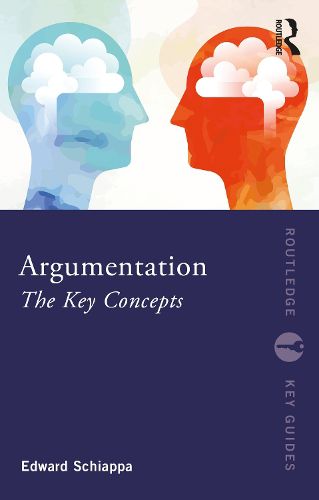Readings Newsletter
Become a Readings Member to make your shopping experience even easier.
Sign in or sign up for free!
You’re not far away from qualifying for FREE standard shipping within Australia
You’ve qualified for FREE standard shipping within Australia
The cart is loading…






This book is an accessible reference guide to the key concepts associated with argumentation theory, criticism, and pedagogy.
Providing an encyclopedic-style synthesis, the book defines and describes 175 essential concepts of argumentation, and provides discussion of the meaning, application, and impact, as well as offering suggestions for further reading. Readers are introduced to foundational reasoning methods-deductive, inductive, and abductive-as well as key argumentative models such as the Toulmin Model and Pragma-Dialectics. The text delves into the identification and analysis of fallacies, the evaluation of evidence, and the crucial roles of context, audience adaptation, and argumentative style. It explores the ethical dimensions of argument, the impact of cognitive bias, and the influence of cultural and discourse communities.
The first of its kind and a key entry point to understanding the fundamental principles of the field, this guidebook is ideal for undergraduate and graduate courses in argumentation, debate, rhetoric, and communication studies as well as other related disciplines. It will also be of interest to the general reader looking to improve their analytical and decision-making abilities.
$9.00 standard shipping within Australia
FREE standard shipping within Australia for orders over $100.00
Express & International shipping calculated at checkout
This book is an accessible reference guide to the key concepts associated with argumentation theory, criticism, and pedagogy.
Providing an encyclopedic-style synthesis, the book defines and describes 175 essential concepts of argumentation, and provides discussion of the meaning, application, and impact, as well as offering suggestions for further reading. Readers are introduced to foundational reasoning methods-deductive, inductive, and abductive-as well as key argumentative models such as the Toulmin Model and Pragma-Dialectics. The text delves into the identification and analysis of fallacies, the evaluation of evidence, and the crucial roles of context, audience adaptation, and argumentative style. It explores the ethical dimensions of argument, the impact of cognitive bias, and the influence of cultural and discourse communities.
The first of its kind and a key entry point to understanding the fundamental principles of the field, this guidebook is ideal for undergraduate and graduate courses in argumentation, debate, rhetoric, and communication studies as well as other related disciplines. It will also be of interest to the general reader looking to improve their analytical and decision-making abilities.